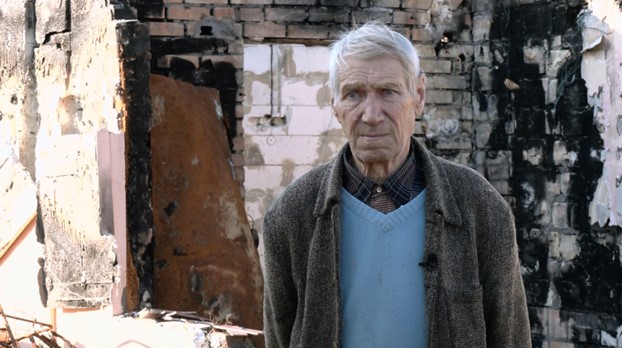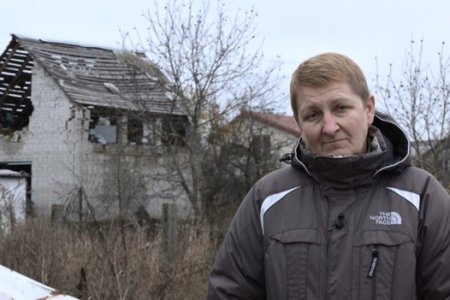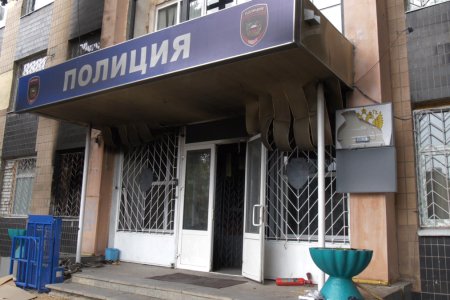— Do you remember how the war came to your house on 24 February?
— It was morning, and the shooting started. I turned on the TV, and they said Russia had attacked Ukraine. Then I realized that this was a war. Every day the situation worsened, and hostilities began; shells, rockets, and Grads [rockets] began to fly into Moshchun, destroying windows. My son came to me, and we lived here for about a week. Almost everyone evacuated, but we stayed for some time. And then, when skirmishes began in Moschun and tanks drove in, we had to evacuate urgently. We left under shelling, but fortunately, we managed to get to Kyiv.
— How was your house destroyed?
— When we evacuated, our house was intact, but many homes were already on fire. A shell hit a neighbor’s house the next day after we left. Then our house was destroyed approximately from March 11th to 13th.
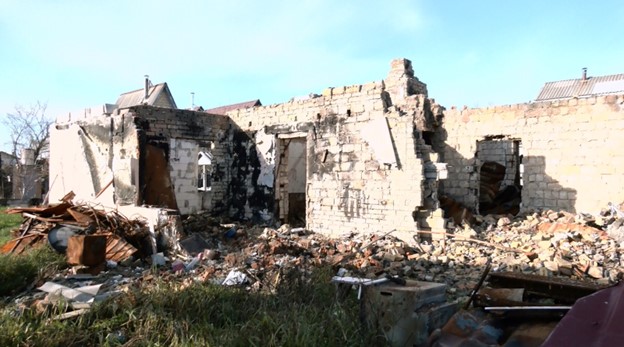
— How did you escape from shelling?
— Rockets flew in different directions overheads and over the houses: Tornadoes, Grads, everything ... There was nowhere to hide, and we hid under the stairs lying on concrete floors. But we understood that this would not save us from a direct hit. When we saw the planes, we fell to the ground.
— How did you emotionally endure such horror?
— Emotionally, of course. I understand that this is a war. I served in intelligence operations. I tried to restrain myself, but it was hard when I thought my children had to go through all this. I constantly thought about the Russians. What the hell do they want here?
— Are there any deceased among your acquaintances in Moschun?
— Yes, I have some. A friend of my son died, who, by the way, took us out of Moshchun. And the next day, a shell literally tore him apart. He was buried in Moschun. In general, there are many dead here, especially in the military. Many monuments have already been erected in the forest, where our defense stood. So many of our soldiers have died.
— Were many houses destroyed in Moschun?
— In Moshchun, 80 percent. There were also many in our Co-op, which belongs to Moschun. Approximately 28 families were left without a roof over their heads. The entire streets where people used to live have been destroyed.
— Are you restoring your house now?
— Yes! As they say, every home starts with a toilet. That’s where we started, but I built a shed to live in first. In the meantime, I’m building a house. The main thing is to survive the winter, and then we will see. Volunteers help a lot. We need to erect a monument during their lifetime. They do everything for us.
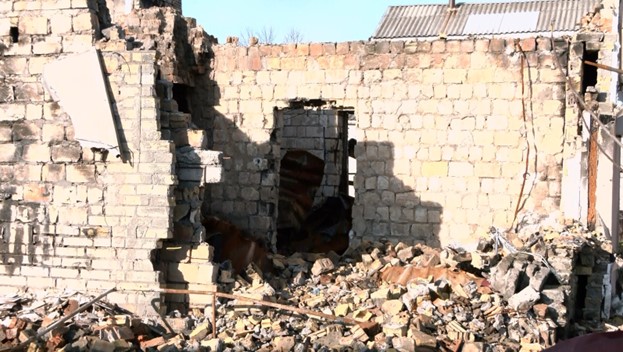
— Does the state help you?
— Not yet! There is no help at the state level, but I would like them to participate, not just volunteers.
— Has your attitude towards Russians changed?
— It was not so hot even before the war. Once upon a time, I often went on business trips to Moscow. Back then, the Russians treated us disdainfully as some younger brothers. So I knew they didn’t like us. Well, now everything is 100% clear.
— Were you preparing for the possible war? Did you have an emergency suitcase?
— No! We only bought a few packs of salt and meat, although it all burned down in the house later. I did not think that they would decide on the occupation of Ukraine.
— What do you plan to do next?
— Clear rubble, rebuild. Because there is no reason to wait for help.
— What were your emotions when Moschun was released?
— When we evacuated to Kyiv, the media constantly followed the news in Moschun. So when we learned about the release, we immediately rushed to our home, which, unfortunately, was destroyed. But, thank God, we are all alive.
— Do you believe that everything will be okay in the end?
— My sons believe in the Armed Forces of Ukraine. And I believe them!
